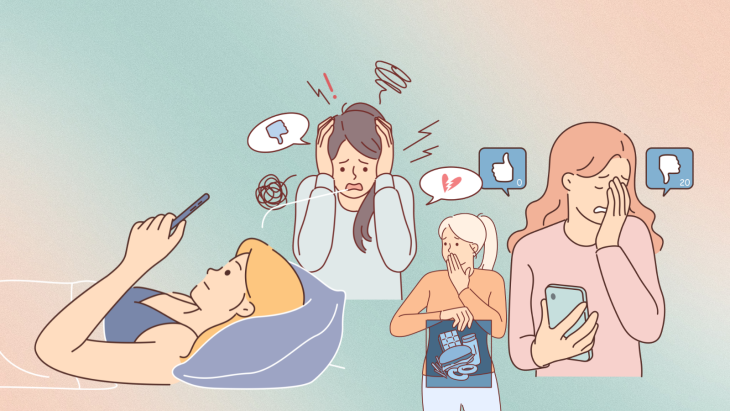Recent Posts
- I broke up with my partner, but now I am having doubts. Did I do it out of the right reasons or was I just being fearful?
- My Quick Temper Pushes People Away. What Do I Do To Manage My Anger?
- How does noise affect my mental health?
- I want to be a better problem solver. What is a step by step approach?
- Escapism. When is it healthy? When is it damaging?
Most Popular
What subtle habits spoil my mental health without me knowing it?

What subtle habits spoil my mental health without me knowing it?
Peak mental health. Is it just a dream? Is it possible to feel self-confident most of the time? How do I reach that mental space where I expect to be successful in what I do? Can I maintain my energy especially at moments that matter to me? What can I do to increase my focus and attention? I really want to be as mentally healthy as possible!
Just as there are physical habits, our mind has its habitual way of thinking and perceiving as well. These habits of the mind come to us naturally over years of repetition, without us having to examine whether they build up or damage our mental health.
What are possible habits that hinder our mind from reaching its full mental capacity?
- Setting goals that are vague. Goal setting is a proven technique of increasing productivity and goal-oriented activities, but when we set goals that are hard for our brain to visualize, they tend not to stick. They are forgettable and the tendency is we lose our aim.
Pro tip: Set goals that are specific and measurable. This way you can reevaluate your progress from time to time. For example, some people find it useful to list their goals and priorities before they go to bed so that they can immediately work on them the following day.
- Working continuously without taking breaks. The mind is an organ that performs various functions at a task. Thinking that you can maintain high mental performance for several hours without rest is unrealistic. In the same way, working for several days uninterrupted by a day or two of rest takes a toll on our mental health in the long run.
Pro tip: Take several minutes of rest every few hours of work, and take a day or two of rest after several days of grueling tasks. A vacation after months at work is also necessary. You will come back from these breaks refreshed, with renewed vigor and fresh perspectives.
- Visiting thoughts of previous stressors again and again. When we find ourselves stressing over a problem, our mind works to solve the problem, cope with the situation, adapt to the challenge and move on. However, when we allow our mind to ruminate, meaning, to recall stressful situations from the past again and again, we relive the problem, along with the stress that came with it. In the beginning we may think that replaying the hurtful memories in our mind are now harmless, the stress hormones and their damaging effects to our bodies are real.
Pro tip: Create a system that you can fall into when negative thoughts come. First, acknowledge the thoughts for a moment and recognize that they are there. Next, remind yourself of the previous victories you have made over that situation, or the life lessons you earned. Find something positive that came out of that situation. Last, set a limit on the time you are allowed to entertain these negative thoughts. For instance, after you give yourself 10 minutes to ruminate, and find something positive, you can then move on with your day.
- Comparing yourself to others and determining your worth based on what you see in others. When comparison is used for more self-motivation, it can have benefits. But when it leads to jealousy, dissatisfaction with your life, and other harmful behaviors, it does impair your mental health.
Pro tip: A lot of our unhealthy comparison comes from overconsumption of social media. Educate yourself on and assess how the media you consume affects your values, beliefs and eventually your identity. Being able to see through messages in the media is a valuable skill in today’s digital world.
- Expecting yourself to become perfect at something. Setting the bar too high, making it unrealistic and unattainable and falling short on these goals may ruin your self-efficacy.
Pro tip: Look at yourself as a person who continues to learn, yet has room to grow no matter how far along you have come. This mindset of growth allows you to look at your current situation including the hustle itself and its challenges as opportunities to get better.
- Not setting boundaries. It looks like accommodating other people’s needs over yours, and feeling unworthy of care and respect. The relationships you create feel unsafe and unbalanced.
Pro tip: Determine who composes your circles of intimacy. First in the inner circle is you. In the next circle are the people you allow to be closest to you and you allow to know you intimately. The third circle is composed of your less intimate friends and family, followed by acquaintances. Next in the circle are people in your community and the last circle is composed of people you don’t know. Being clear with your circle of intimacy or relationship circle allows you to set limits on the amount of care, time and effort you put in a particular relationship.
If you need guidance on establishing these healthy habits, talk to a mental health practitioner to further increase your self-awareness and mindfulness.
Don’t let the little things spoil your mental health. The small habits you establish to take care of your mind matter now and they will allow you to enjoy their rewards in the years to come!







Comments